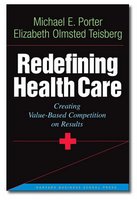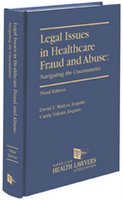
This issue keeps turning up on SCOTUS' docket every few years like the proverbial bad penny. Most recently, it takes the form of
Riegel v. Medtronic,
No. 06-179. The petition for
certiorari to the Second Circuit is pending, and after it was considered by the Court at its Nov. 3 conference, the justices invited the
Solicitor General's office (on Nov. 6) to file a brief addressing the
cert-worthiness of the case (known in the parlance of the trade -- the Supreme Court advocacy trade, that is -- as a CVSG (a "call for the views of the Solicitor General"). When the SG's brief is filed, it will be posted
here. Thanks to Aaron Streett's excellent (and wickedly irreverent) Supreme Court e-mail newsletter for this bit of intelligence (subscription requests to "SCt Today" may be sent
here).
The opening paragraphs of the
Second Circuit's 2-1 opinion tell the tale nicely:
This case calls upon us to determine, inter alia, the scope of the preemption provision set forth in Section 360k(a) of the 1976 Medical Device Amendments to the Food, Drug, and Cosmetic Act, 21 U.S.C. §§ 301 et. [sic] seq. [link]Specifically, we must decide whether Section 360k(a) preempts common law tort claims regarding medical devices that have entered the market pursuant to the Food and Drug Administration’s (“FDA”) rigorous premarket approval (“PMA”) process. The Supreme Court left open this question in Medtronic v. Lohr, 518 U.S. 470 (1996) [link], which held that tort claims as to medical devices that have entered the market pursuant to the far less intensive premarket notification process (often referred to as the “Section 510(k) process”) are not preempted by Section 360(k)(a) [sic]. Since Lohr, the majority of circuits addressing this question have held that claims regarding PMA-approved medical devices are, by contrast, preempted. See Horn v. Thoratec Corp., 376 F.3d 163 (3d Cir. 2004); Martin v. Medtronic, Inc., 254 F.3d 573 (5th Cir. 2001); Brooks v. Howmedica, Inc., 273 F.3d 785 (8th Cir. 2001); Kemp v. Medtronic, Inc., 231 F.3d 216 (6th Cir. 2000); Mitchell v. Collagen Corp., 126 F.3d 902 (7th Cir. 1997); but see Goodlin v. Medtronic, Inc., 167 F.3d 1367 (11th Cir. 1999).
We now join this growing consensus and hold that tort claims that allege liability as to a PMA-approved medical device, notwithstanding that device’s adherence to the standards upon which it obtained premarket approval from the FDA, are preempted by Section 360(k)(a)[sic]. . . .
So there is a slight split in the circuits, more of a fissure, really, and the Court has asked the SG's office to offer some guidance on the need for the Court to clear up the confusion (whichever side might be said to be confused). Stay tuned . . . .







